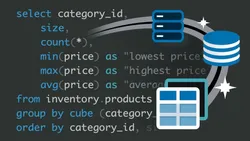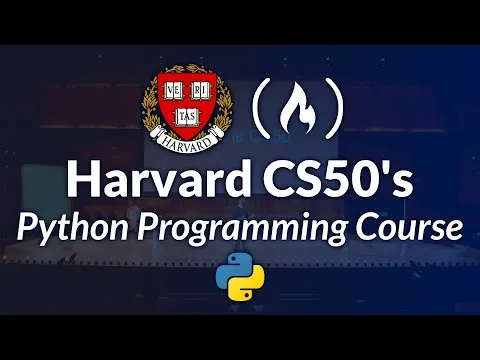
Introduction to Java and Object-Oriented Programming 
This course provides an introduction to the Java language and object-oriented programming. Students will learn the basics of Java syntax, how to write custom classes and methods, and how to test their code. Topics include data structures, overloading methods, and test-driven development. Get a jump start on your Java programming journey today! ▼
ADVERTISEMENT
Course Feature
![]() Cost:
Cost:
Free
![]() Provider:
Provider:
Coursera
![]() Certificate:
Certificate:
Paid Certification
![]() Language:
Language:
English
![]() Start Date:
Start Date:
10th Jul, 2023
Course Overview
❗The content presented here is sourced directly from Coursera platform. For comprehensive course details, including enrollment information, simply click on the 'Go to class' link on our website.
Updated in [June 30th, 2023]
This course provides an introduction to the Java language and object-oriented programming. Students will gain an understanding of the Java syntax and how it differs from other languages such as Python. They will learn how to create custom Java classes and methods, and how to test their code using unit testing and test-driven development. Additionally, topics such as basic data structures such as Arrays and ArrayLists, and overloading methods will be covered. By the end of the course, students will have a solid foundation in Java and object-oriented programming.
[Applications]
After completing this course, students should be able to apply their knowledge of Java and object-oriented programming to create custom classes and methods, and to test their code using unit testing and test-driven development. They should also be able to use basic data structures like Arrays and ArrayLists, and understand how to overload methods. Additionally, they should be able to identify the differences between Java and other languages like Python.
[Career Path]
One career path that this course could lead to is a Java Software Developer. Java Software Developers are responsible for developing, testing, and maintaining software applications written in Java. They must have a strong understanding of the Java language and object-oriented programming principles, as well as experience with development tools such as Eclipse and IntelliJ. They must also be able to work with databases and web technologies such as HTML, CSS, and JavaScript.
The demand for Java Software Developers is expected to continue to grow as more companies move to cloud-based solutions and require developers with experience in Java. Additionally, the rise of mobile applications and the Internet of Things (IoT) has created a need for developers with experience in Java. As such, the job outlook for Java Software Developers is expected to remain strong in the coming years.
[Education Path]
The recommended educational path for learners is to pursue a Bachelor's degree in Computer Science. This degree will provide a comprehensive overview of computer science fundamentals, such as algorithms, data structures, software engineering, and operating systems. Students will also learn about programming languages, such as Java, C++, and Python, and how to use them to develop software applications. Additionally, students will gain an understanding of computer architecture, computer networks, and computer security.
The development trend for computer science degrees is to focus on the application of computer science principles to real-world problems. This includes topics such as artificial intelligence, machine learning, data science, and cloud computing. Additionally, many universities are now offering courses in mobile application development, web development, and game development. These courses will provide students with the skills necessary to develop software applications for a variety of platforms.
Course Syllabus
Module 1 : Introduction to Java, Classes, & Eclipse
Welcome to Java! This first module provides an introduction to the Java language and object-oriented programming. It includes an overview of Java syntax, in particular, how it differs from a language like Python. Topics will include variables and data types, loops and conditionals, printing to the console, scanning for user input, and code documentation. This module also explains the structure and inner-workings of a Java class and teaches you how to define your own custom classes and methods.Module 2 : Unit Testing, Arrays, & ArrayLists
In this module, you will be taught to test your code to get it working. The best way to do this is to write a set of unit tests that you can run against your program, at any time. In this module, we'll learn how to do unit testing in Java, and why we want to do it. We’ll also learn all about Java Arrays, which are collections of items, and ArrayLists, which are kind of like arrays, but much more flexible. These work just like lists in Python. ArrayLists are part of Java’s larger Collections Framework, which we’ll continue to reference throughout this course.Module 3 : Static Variables, Methods, & Polymorphism Using Overloading
So far, we’ve been defining variables as instance variables in our Java classes. Instance variables are just variables defined inside a class, and every instance of a class can have a different value for an instance variable.Pros & Cons

Practical introduction course with challenging assignments.

Good for beginners, with simple initial assignments.

Provides a concise overview of Java syntax.

Inconsistencies in course content and homework.

Bugs in autograders and lack of support for fixing them.

Lack of lectures on Object-Oriented Design.

Fast pace may not lay a strong foundation for beginners.

Frustrating experience with Codio coding platform.

Lack of explanation from the lecturer and insufficient hints for assignments.

Limited support and unanswered questions in the discussion forum.
Course Provider

Provider Coursera's Stats at AZClass
Discussion and Reviews
0.0 (Based on 0 reviews)
Explore Similar Online Courses

Digital Customer Analytics

Google Analytics Online Training

RDBMS PostgreSQL

Intro To PostgreSQL Databases With PgAdmin For Beginners

PostgreSQL: Client Applications

Mastering SQL using Postgresql

Database Design and Basic SQL in PostgreSQL

PostgreSQL: Advanced Queries

Spatial SQL with Postgres : A language for geographers

Learn SQL Using PostgreSQL: From Zero to Hero

PostgreSQL Essential Training


Start your review of Introduction to Java and Object-Oriented Programming